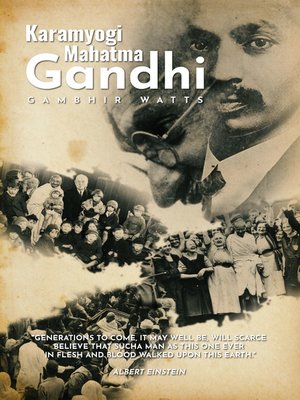
Sign up to save your library
With an OverDrive account, you can save your favorite libraries for at-a-glance information about availability. Find out more about OverDrive accounts.
Find this title in Libby, the library reading app by OverDrive.



Search for a digital library with this title
Title found at these libraries:
| Library Name | Distance |
|---|---|
| Loading... |
Gandhiji had studied the Bible, the Koran, and many of the Hindu scriptures, and while each of these scriptures inspired him, he was deeply moved by the Gita. He read it over and over, and he transcribed his interpretation of the Gita, into a book. In this book, he discusses his understanding of the essence of the discourse between Arjun and Lord Krishna and converts this understanding into daily prayers. Gandhiji particularly chose chapter 12 of the Gita as the most important and requested that it should be recited daily in his ashrams, as this chapter teaches the art of devotion. This chapter was recited daily together with the interfaith prayers and the 11 vows at the Phoenix Settlement, where I was born and grew up. When Arjun asks Lord Krishna which course is better, devotion to a specific personal God (Sakara) or devotion to the Absolute (Nirakara), Lord Krishna's response is what is contained in chapter 12 of the Gita. Gandhiji explains in his interpretation of this chapter; the devotee does not cease to work. He only ceases to think needless thoughts. It is these that he has to renounce to be free from thoughts of acquiring wealth or fame, to be free from want, to be free from base emotions. Only with loving dedication can he take each task as a task for God. He sees the spark of Godliness in all humanity and the universe and so his every task is for the benefit of all







